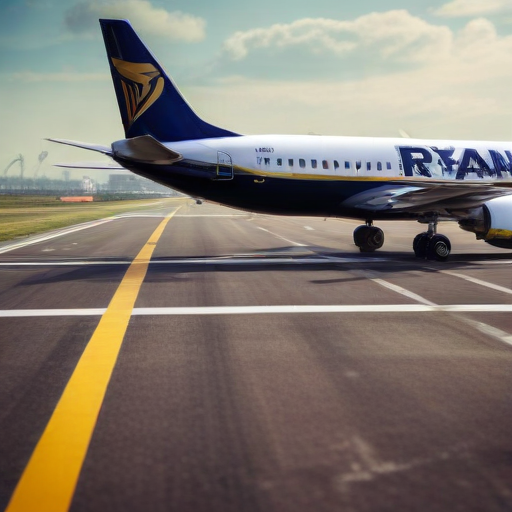Ryanair has expressed disappointment with its recent business performance, a sentiment echoed by its investors. Following the release of a quarterly earnings report that fell short of expectations, the Irish budget airline saw its stock drop by 17%. The company’s revenue for the quarter stood at €3.6 billion (approximately $4 billion), remaining nearly unchanged from the previous year. However, profits experienced a steep decline, nearly halving to €336 million.
CEO Michael O’Leary noted that while Ryanair was successfully increasing the number of passengers, achieving this growth required significant effort and aggressive pricing strategies. On a recent earnings call, he highlighted a 10% increase in traffic, bringing the total number of passengers to 55 million. However, he cautioned that maintaining this growth came at a cost, as close-in bookings had performed worse than anticipated leading into the busy summer months of July, August, and September.
In addition to lower demand, Ryanair is contending with rising labor costs and has pointed fingers at Boeing for ongoing delivery delays—a longstanding issue that O’Leary has criticized. While he stood by Ryanair after a mid-flight incident involving a 737 Max 9 earlier this year, he has consistently urged Boeing to improve its performance.
O’Leary also indicated that customers might be feeling the financial strain more acutely than earlier in the economic recovery following the COVID-19 pandemic, as inflation and sluggish growth impact spending power across the European Union. In light of this, he noted a potential silver lining for the airline, suggesting that a reduction in aircraft capacity could actually benefit Ryanair in the upcoming years.
“We will have less capacity into summer 2025 than we are originally scheduled to have with our Boeing delivery, and then, we’re into two years of essentially no capacity growth at all,” O’Leary explained. He added that if consumer pressures continue for the next year or 18 months, operating with fewer planes might not necessarily be a disadvantage.
Comment: While the current challenges facing Ryanair are significant, the airline’s recognition of these issues and its ability to adapt may pave the way for future resilience. By managing capacity strategically in response to market conditions, Ryanair could position itself well once consumer confidence and economic stability return.
Summary: Ryanair’s stock fell 17% after reporting disappointing quarterly earnings, with revenue stable but profits nearly cut in half. CEO O’Leary emphasized the challenges of maintaining traffic growth amid higher labor costs and economic strains impacting customers in the EU. He also suggested that reduced capacity in the coming years could ultimately benefit the airline, allowing it to navigate the potential downturn in demand.
